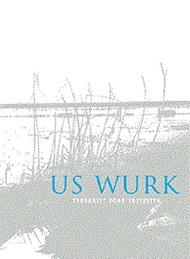De noarm fan it Frysk en taalideology
Abstract
The aim of this article ['The norm of West Frisian and language ideology'] is to show that most of the reactions called forth by my dissertation Noarmaspekten fan it hjoeddeiske Frysk [''Standard' Aspects of Contemporary Frisian'] (Groningen, 1993) from the ranks of the Frisian Movement were, at least partly, inspired by motives of language ideology. This applies for instance to the reactions of A. Feitsma, S.T. Hiemstra, R.J. Jonkman, R. Straatsma and L.H. Westra. My argument is that in writing a dissertation the researcher should (of course) strongly pursue an independent and critical approach to his subject, which implies keeping aloof from considerations of language ideology.Consequently, as far as the language standard of Frisian is concerned, the researcher should, in my opinion, not adopt one standard or another. Besides, this issue is too complicated to allow of simple choices. Another consequence of my approach is that one should not refrain from mentioning facts that are less favourable to the position of the Frisian language, such as the dominant linguistic and social status of Dutch in the Frisian language area.
The above-mentioned critics attempt to show the invalidity of the perspective I have chosen. In doing so they make it appear as if the role of Dutch in Friesland can be minimized or even ignored and as if the position and the standard of Frisian were not extremely problematical. In order to give a comprehensive picture, I have not limited myself to the (direct) reactions to my dissertation alone. Moreover, I have put them in a wider sociolinguistic perspective. In the reactions of my critics I distinguish four types of approach:
1. attributing (largely or exclusively) negative characteristics to Dutch (and to other standard languages);
2. not comparing Frisian to its rival and dominator Dutch, or at least as little as
possible, but to other languages that are likewise in a minority position, e.g. Welsh;
3. emphasizing the positive characteristics of Frisian and the Frisians;
4. concentrating too much on the 'successes', the positive aspects of Frisian in its
struggle with Dutch, whilst ignoring its losses, which are - not only in my view -
larger.
I argue that by adopting these approaches, which can only be explained as stemming from language ideology, my critics have distorted the perspective I have chosen. I hope to have shown, however, that they have not succeeded in refuting my linguistic and sociological description of the relationship between Frisian and Dutch.

